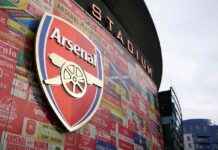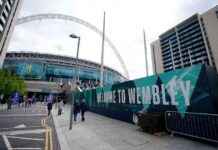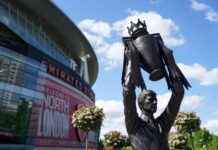The world of Premier League football is constantly evolving, with managers coming and going like a revolving door. As the off-season progresses, we have witnessed several high-profile managerial changes that have left fans and pundits scratching their heads. From David Moyes leaving West Ham to Mauricio Pochettino departing from Chelsea, the managerial merry-go-round is in full swing.
The Departures
One of the most surprising departures this off-season was that of David Moyes from West Ham. Moyes, who has saved the club from relegation twice in the past five seasons, led West Ham to a sixth and seventh-place finish in the Premier League. Under his tenure, the club even secured European competition for three consecutive seasons, culminating in a Europa Conference League win in 2022/23. Despite these achievements, Moyes found himself out of a job, much to the disappointment of West Ham fans like Paul Donovan.
Another notable departure was Mauricio Pochettino from Chelsea. Pochettino took over a club obsessed with buying success and managed to secure a sixth-place finish in the Premier League, qualifying for the Europa League next season. Chelsea also reached the final of the League Cup and the semi-finals of the FA Cup under Pochettino’s guidance. However, the powers that be at Chelsea deemed these accomplishments insufficient, leading to Pochettino’s departure.
Vincent Kompany, the manager of relegated Burnley, also made a move to bigger and better things by taking charge at Bayern Munich. Kompany’s leap to a top European club based on his performance with a smaller, relegated team raised eyebrows in the football world.
The Pressures of Social Media
David Moyes’s departure from West Ham has been attributed to the relentless pressure from social media and certain media outlets. Despite his success in keeping the club afloat and achieving notable feats, such as reaching the quarter-finals of the Europa League, Moyes faced constant scrutiny and criticism. The pressure to conform to a certain style of football and the relentless campaign to have him sacked ultimately led to his departure.
The Role of Directors of Football
In the modern football landscape, managers often find themselves at the mercy of directors of football who oversee player signings and managerial decisions. The relationship between the manager and the director of football is crucial for the success of a club. At West Ham, tensions between manager David Moyes and director of football Tim Steidfen reached a breaking point, with Moyes reportedly banning Steidfen from the dressing room. This breakdown in communication highlights the importance of a harmonious relationship between the two parties.
The practice of clubs signing players independently of the team manager has also raised questions about the decision-making process within clubs. The influx of new players and the exclusion of existing ones when a new manager arrives showcase the need for greater input from the manager who works directly with the team.
The Business of Football
Despite the popularity of football as a sport, the business model of many clubs seems to be on shaky ground. The key to long-term success lies in making the right choices and sticking by them. Managers like Pep Guardiola at Manchester City and Jürgen Klopp at Liverpool have shown that sustained success is possible with the right approach. Clubs like Arsenal, with a history of stability under Arsene Wenger and now Mikel Arteta, serve as examples for others to follow.
In conclusion, the future of Premier League football hangs in the balance as clubs navigate the complexities of managerial changes, directorial influences, and the pressures of social media. Learning from successful clubs and fostering strong relationships between managers and directors of football will be crucial for clubs aiming for sustained success in the ever-evolving world of football.





















